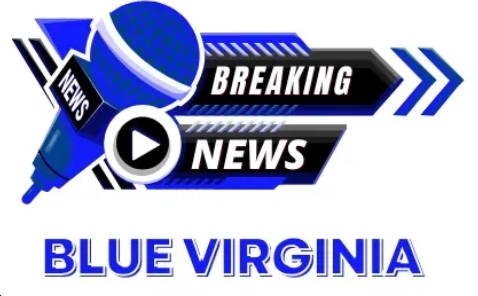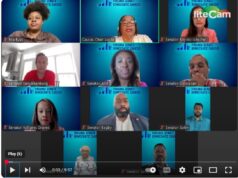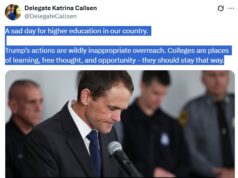by Stephanie Rizzi, the duly elected School Board member of Richmond’s 5th District. This article is representative of Ms. Rizzi’s position and does not represent a formal position of the Richmond School Board.
A November 2021 ballot referendum to bring casinos to Richmond promises jobs and funding for public education. These are empty promises. As a newly elected school board member, I oppose the measure. Casinos prey on the poor, will not bring more funding for our schools and will only serve politicians and corporations.
Corporate CEOs and interests representing casinos claim falsely that gambling will provide our public schools with the resources they need to thrive. This, as the wealthy send their children to private schools, leaving middle class schools underfunded, and schools for students of color severely underfunded. It is an illusion to suggest casinos will bring forth the redistribution of wealth needed to bring educational parity and equity for our children.
Like a scheme hatched by Donald Trump—whose Atlantic City casinos went bankrupt and were demolished— casinos divert public money for private profit.
Promises that casinos would add billions of dollars for Maryland schools were never realized because the funding formulas were not changed, and no new money ever came. However, casinos benefited from tax breaks, and Baltimore schools suffered from budget cuts.
Similarly, the Virginia lottery was sold as a funding vehicle for public education, which sounded good until we learned state legislators simply subtracted the amount of state revenue going to public education. There was no net gain to public education. It was a political tactic, a bait and switch and a shell game that serves politicians and CEOs, but not poor people and people of color. I, as an educator, did not fully understand this myself until one of my college freshman’s research unveiled what was news to us all.
Like the lottery, casinos prey on poor, Black and Latinx people and their dreams for better life, and deeply affect the economic wellbeing of marginal and disenfranchised communities. All one has to do is drive by Rosies at midnight and see a line of Black and brown people desperate to make their dreams come true.
Gambling is unfair and unequal because it takes money from the poor. The industry purposely targets Black, brown and poor white communities. In past years, Black people have spent close to $1,000 per capita on lottery tickets, as opposed to $200 for White people. Casinos make their money by exploiting low-income people through the slot machine, by enticing them “to make a huge number of small bets per visit, to visit the casino several times per month, or even per week, and to sustain this pattern over a period of years.”
Meanwhile, in the middle of a pandemic, who has disposable income? The level of depression and desperation means it is more likely that people who do not have the means will spend money they do not have to gamble.
Further, casinos are not an economic panacea, and will not deliver the jobs that people believe will come. Rather, these will be jobs with low wages. As a source of economic development, casinos have been an abject failure in lifting up low-income and economically depressed communities. One need look no further than Atlantic City, where 40 percent of its residents live in poverty. COVID-19 and hard economic times only exacerbated these harsh conditions. Furthermore, the casino industry has had record layoffs all year. It is not, nor has it ever been, a dependable job https://www.google.com/search?q=casino+layoffs.
As casinos and lotteries become the go-to sources to overcome state budget shortfalls while falsely promising jobs and economic prosperity, wealth is being transferred upward from poor people and Black folks to the rich.
Using casinos in this way is an absolute refusal to put corporate taxation on the table. For much of U.S. history, Las Vegas followed by Atlantic City were the only legal gambling jurisdictions. However, casinos have reemerged after conservative Republicans and neoliberal corporate Democrats won the battles against just taxation policies.
There are Democrats who want to be seen as delivering public services to their upper-middle class and professional-class constituents, but don’t want to anger their donors and call for a higher corporate tax rate. Casinos destroy communities and they act as a political bulwark against the type of progressive taxation that could actually provide public services for all.
In a political climate where politicians don’t want to raise taxes, revenue still is needed to fund the services people need. Casinos and other forms of gambling are appealing because they are viewed as “free money,” and in any case they’re not taxes. Casinos destroy communities, and act as a political bulwark against the type of progressive taxation that could actually provide public services for all.
That some people are promoting casinos in the middle of dual public health and economic crises reveals the level of cowardice in people not calling for corporations to pay their fair share of taxes.
As a new school board member who has seen friends and loved ones suffer from the devastation of gambling addiction, I want to protect those young people and their families who would live near the casino. Many people have no idea how devastating gambling addiction really is. I stand to tell you that problem gambling is every bit as damaging to families as the worst drug addiction. The proposed casino site at Walmsley Blvd. and I-95 is near the heart of poor Black and brown communities and not very far from a mission that treats people for addiction.
According to the National Center for Responsible Gaming, between 1.1 and 1.6 percent of American adults—3 to 4 million people—have a gambling disorder, that is more than the number of women living in the U.S. with a history of breast cancer. Moreover, another 2 to 3 percent—5 to 8 million—have a gambling addiction, though that number could be even higher. Gambling addiction like many addictions is a condition that is often vastly under reported. In addition, those who are prone to addiction have fewer resources. Access to quality treatment for addiction is expensive, and many insurance companies do not cover it.
The question is not whether gambling should be illegal for individuals. Lord knows, we don’t need to criminalize anything else. The question is: should we allow a corporation with the singular desire to make profit harm our community while pretending they’re helping? The question is: should we accept such a short sighted and exploitative plan instead of demanding long-term sustainable economic development? Gambling is a public health concern that destroys lives, and it is important to expose and challenge the false argument that casinos will solve all our problems—because they will not.
Casinos are here to serve people with political power at the expense of those who have no clout. Casinos would rob Richmond communities in most need of support. There are better ways to help our schools without harming the very people we claim to help.
As evidenced in other cities, casinos usually buy influence in the community to manufacture support. They’ll sponsor community events, put pastors on payroll, and seek bipartisan support from elected officials. They all also promote this as economic development. Making it seem like being against the casino is being against the city and progress itself. They’ll tell us we need this; that if we don’t support this, we are against public schools; that if we oppose this, we don’t support progress. They will promise thousands of high paying jobs for minority communities and fail to deliver. They will talk about how casino gambling is moving online. As evidenced time and time again, the contract that the casino will make with the City of Richmond will have clauses in it to allow them to get out of their promises for nearly any reason. Don’t believe the hype.


 Sign up for the Blue Virginia breaking news newsletter
Sign up for the Blue Virginia breaking news newsletter
![Video: Speaking to a Packed, Fired-Up House at the Opening Night of the 2025 VA Women’s Summit, Sen. Tim Kaine Rips Youngkin – “If you won’t stand up for [UVA], will you stand up for ANYTHING?!?”](https://bluevirginia.us/wp-content/uploads/2025/06/kainewontstandup-238x178.jpg)





![“Attorney General [Jason Miyares] is a coward who refuses to defend our state’s laws [against so-called ‘conversion therapy’] that demonstrably prevent suicide”; “Glenn Youngkin is simply despicable”](https://bluevirginia.us/wp-content/uploads/2025/07/youngkindespicable-100x75.jpg)

